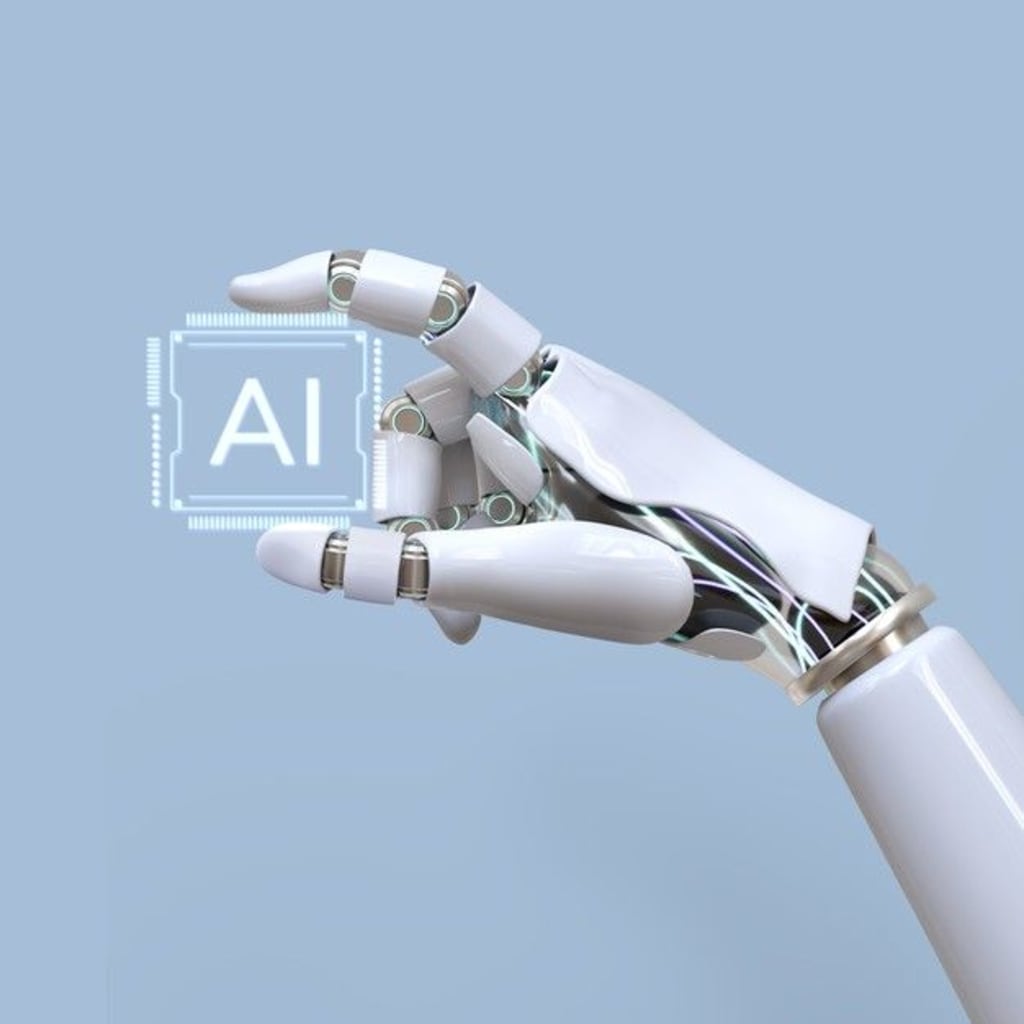AI Revolutionizing Life.
Artificial intelligence

Artificial Intelligence (AI) is a rapidly growing field that has the potential to revolutionize how we live and work. It is an interdisciplinary field that combines computer science, mathematics, and cognitive science to develop machines that can perform tasks that usually require human intelligence, such as visual perception, speech recognition, decision-making, and natural language processing.
AI systems use algorithms to learn from data and improve their performance over time. There are two main types of AI: narrow or weak AI and general or strong AI. Narrow AI is designed to perform a specific task, while general AI is designed to perform any intellectual task that a human can do.
One of the most promising applications of AI is in healthcare. AI-powered systems can help doctors diagnose diseases more accurately and efficiently, predict patient outcomes, and develop personalized treatment plans. AI can also be used to monitor patients remotely and alert healthcare providers of any changes in their condition.
Another area where AI is making a significant impact is in autonomous vehicles. Self-driving cars use AI algorithms to analyze sensor data and make decisions about how to navigate roads safely. They can reduce traffic accidents, improve traffic flow, and increase mobility for people who cannot drive, such as the elderly or disabled.
AI is also transforming the way we work. It is being used to automate routine tasks, such as data entry and customer service, freeing up employees to focus on more creative and strategic work. AI-powered chatbots can provide 24/7 customer support, while AI-powered recruitment tools can help companies identify the best candidates for a job.
However, the rapid development of AI has also raised concerns about its impact on society. There are concerns that AI could displace jobs, exacerbate inequality, and be used to create autonomous weapons. There are also concerns about the potential misuse of AI by governments or corporations.
To address these concerns, it is important to ensure that AI is developed and deployed in an ethical and responsible way. This includes ensuring that AI systems are transparent, explainable, and accountable, and that they are designed to benefit society as a whole.
AI is a rapidly growing field that has the potential to transform how we live and work. It is being used to improve healthcare, transportation, and many other areas of our lives. However, it is important to ensure that AI is developed and deployed in an ethical and responsible way to ensure that its benefits are shared fairly and that its potential risks are mitigated.
There are many benefits of AI
Enhancing Efficiency and Automation:
One of the significant advantages of AI is its ability to automate tasks that were previously time-consuming and labor-intensive. AI-powered algorithms and machine learning models can quickly process vast amounts of data, identify patterns, and make intelligent decisions without human intervention. This automation has the potential to enhance efficiency and productivity across industries. For example, in manufacturing, AI-enabled robots can perform repetitive tasks with precision, reducing errors and increasing output.
Revolutionizing Healthcare:
AI has the potential to revolutionize healthcare by assisting medical professionals in diagnosis, treatment, and research. Machine learning algorithms can analyze medical records and data, identify potential diseases or patterns, and help doctors make accurate diagnoses. AI can also aid in drug discovery and personalized medicine, enabling tailored treatments based on an individual's genetic profile and medical history. Additionally, AI-powered robots and virtual assistants can provide support in patient care, monitoring, and rehabilitation.
Enabling Smarter Cities:
As urban populations grow, AI plays a crucial role in creating smarter and more sustainable cities. Intelligent systems powered by AI can optimize energy consumption, traffic management, waste management, and public safety. By analyzing data from various sources, such as sensors and cameras, AI algorithms can make real-time decisions to improve efficiency and enhance the quality of life for city residents. For example, AI can optimize traffic flow, reduce congestion, and even predict accidents to ensure safer and more efficient transportation systems.
Transforming the Workplace:
AI is reshaping the workplace by augmenting human capabilities and enabling new ways of working. While there are concerns about job displacement, AI has the potential to enhance human productivity and creativity. Routine tasks can be automated, freeing up time for employees to focus on more complex and strategic activities. AI-powered virtual assistants can help with scheduling, information retrieval, and decision-making, enabling employees to be more efficient. Moreover, AI can provide valuable insights by analyzing data and enabling data-driven decision-making in various domains.
Ethical Considerations:
As AI becomes more integrated into our lives, ethical considerations surrounding its use become crucial. It is essential to ensure transparency, accountability, and fairness in AI systems. AI algorithms should be developed and deployed with consideration for biases, privacy concerns, and potential societal impacts. Responsible AI practices are vital to ensure that AI technologies benefit humanity without causing harm or reinforcing existing inequalities.
Conclusion:
Artificial Intelligence has emerged as a transformative force with the potential to shape the future. From enhancing efficiency and automation to revolutionizing healthcare and enabling smarter cities, AI is changing the way we live, work, and interact. However, as AI continues to evolve, it is essential to approach its development and deployment with ethical considerations, ensuring that it serves the greater good of humanity. By harnessing the power of AI responsibly, we can unlock its full potential and create a future that is both technologically advanced and socially inclusive.
About the Creator
Muqadas baloch
I am article writer and I am from pakistan subscribe me to keep updated from my newest stories.






Comments
Muqadas baloch is not accepting comments at the moment
Want to show your support? Send them a one-off tip.